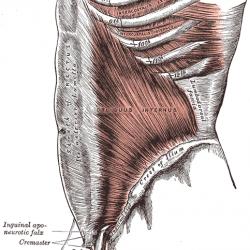Title: Tips for Practicing Mindfulness: A Path to Healing in Addiction and Mental Health Treatment
In today's fast-paced world, the concept of mindfulness has gained significant traction, particularly in the realms of addiction and mental health treatment. Mindfulness, rooted in ancient practices like meditation and yoga, has proven to be an invaluable tool in promoting overall well-being and aiding recovery. With addiction and mental health issues on the rise in the USA, incorporating mindfulness techniques into treatment plans has become increasingly common. Here, we'll delve into some practical tips for practicing mindfulness, tailored specifically for individuals navigating the challenges of addiction and mental health issues.
- Start Small: Incorporating mindfulness into your daily routine doesn't have to be daunting. Begin with just a few minutes of mindfulness practice each day, gradually increasing the duration as you become more comfortable. This could involve simple activities like deep breathing exercises, guided meditation sessions, or mindful walking.
- Be Present: Mindfulness is all about being fully present in the moment, without judgment. Rather than dwelling on the past or worrying about the future, focus on what's happening right now. Pay attention to your thoughts, feelings, and sensations as they arise, acknowledging them without getting caught up in them.
- Practice Acceptance: Acceptance is a fundamental aspect of mindfulness practice. Instead of resisting or trying to suppress difficult emotions or cravings, allow yourself to experience them fully. Recognize that discomfort is a natural part of the human experience and that it will eventually pass.
- Cultivate Compassion: Extend compassion to yourself and others as you navigate the ups and downs of recovery. Treat yourself with kindness and understanding, recognizing that you're doing the best you can in this moment. Similarly, practice empathy towards others who may be struggling, knowing that we're all in this together.
- Stay Consistent: Like any skill, mindfulness requires consistent practice to yield meaningful results. Set aside dedicated time each day for mindfulness exercises, even when you don't feel like it. Over time, you'll notice improvements in your ability to stay present and manage difficult emotions more effectively.
- Utilize Resources: Fortunately, there are numerous resources available to support your mindfulness practice. This could include mindfulness apps, online courses, books, or local support groups. Find the resources that resonate with you and incorporate them into your daily routine.
- Incorporate Mindful Activities: Mindfulness doesn't have to be limited to formal meditation practice. You can cultivate mindfulness in everyday activities like eating, showering, or washing dishes. Pay attention to the sensory experience of these activities, engaging all your senses fully.
- Seek Professional Guidance: While self-guided mindfulness practice can be beneficial, it's also essential to seek guidance from qualified professionals, especially when dealing with addiction or mental health issues. Therapists, counselors, and addiction specialists can provide personalized guidance and support tailored to your specific needs.
- Practice Gratitude: Cultivating a sense of gratitude can significantly enhance your mindfulness practice. Take a few moments each day to reflect on the things you're grateful for, no matter how small. This simple practice can help shift your focus from what's lacking to what's already present in your life.
- Be Patient and Persistent: Lastly, remember that mindfulness is a journey, not a destination. Be patient with yourself as you navigate the ups and downs of the practice. Even on days when it feels challenging, remember that every moment is an opportunity to begin anew.
In conclusion, practicing mindfulness can be a powerful tool in addiction and mental health treatment, helping individuals cultivate greater awareness, resilience, and inner peace. By incorporating these tips into your daily routine, you can embark on a journey of healing and transformation, one mindful moment at a time.
Hammocks on the Edisto is the premier women's drug rehab in South Carolina. Contact us today to learn how our addiction treatment center can help you practice mindfulness on your way to recovery.
More to Read:
Previous Posts:







